Journal Boards
Editor in Chief
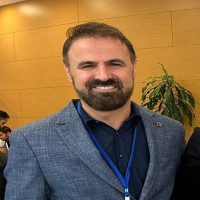
Editors
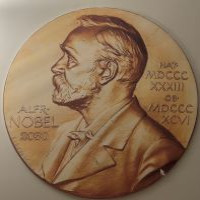
Assistant Professor of Inorganic Chemistry. Independent researcher, interested in the field of research, education and self-development, with a constant quest to raise awareness among students by motivating them towards development and learning. Professional in the field of theoretical studies studying the photophysical properties of inorganic and organic compounds using the Gaussian Chemistry program, as well as a high-performance computing server, analyzing the output results using Chemissian software. I have a tendency towards uniqueness and excellence in scientific publishing. Also I have various contributions to undergraduate students in the educational and research fields, as you will find on my YouTube channel: https://studio.youtube.com/channel/UCQbvngCTnUDyHlHVOTcdp2w/videos/upload?filter=%5B%5D&sort=%7B%22columnType%22%3A%22date%22%2C%22sortOrder%22%3A%22DESCENDING%22%7D there are series in the field of computational chemistry and its application in scientific research, solving various exercises for some of my teaching courses such as Inorganic Chemistry 1 and coordination chemistry. I am a certified trainer in self-development, along with many other things.



Sistem Mühendisliği lisans programı (1996), Endüstri Mühendisliği (Mühendislik Yönetimi) Yüksek Lisans Programı (2004) ve Endüstri Mühendisliği doktora programı (2013) mezunu.
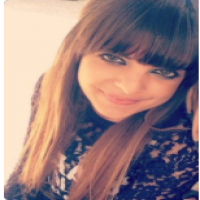
Associate Editors
Debidatta Behera is an Assistant Professor at Kalinga Institute of Social Sciences (KISS) Deemed to be university, specializing in computational condensed matter physics. His research focuses on density functional theory (DFT), exploring the structural, electronic, optical, and thermodynamic properties of novel materials. With expertise in first-principles calculations, he investigates the potential applications of emerging materials in renewable energy, spintronics, and optoelectronics. Through his work, he contributes to the advancement of theoretical materials science, offering insights into next-generation functional materials for technological innovations.
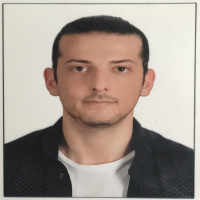
Assit. Prof. Dr. Volkan Altunal is a faculty member at Çukurova University, born in 1990. He completed his undergraduate and master's degrees at the Department of Physics, Çukurova University, and obtained his PhD with a dissertation titled "Development of BeO Ceramic OSL Dosimeters: Their Synthesis, Sintering, and Luminescence Studies" at the same institution. His research interests include radiation energy storage, optically stimulated luminescence (OSL), thermoluminescence (TL), synthesis of ceramic and oxide materials, radiation dosimetry, and material characterization.
Assit. Prof. Dr. Altunal has made significant contributions to the field, particularly focusing on the luminescent properties of BeO ceramics, and has been involved in national and international projects. In 2021, he obtained an international patent titled "Doped BeO Compounds for Optically Stimulated Luminescence (OSL) and Thermoluminescence (TL) Radiation Dosimetry," further advancing innovative dosimeter systems. He has also conducted research on the synthesis of various functional materials, with a focus on perovskite-based materials for dosimetry applications.
With over 16 publications in SCI-indexed journals, and he has participated in NATO-supported projects and led individual research projects at Çukurova University. Dr. Altunal continues to contribute to the field, gaining recognition internationally for his work on radiation dosimetry and luminescent materials.

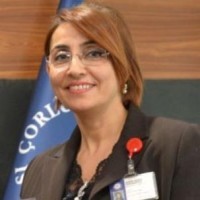
Günay Yıldız Töre has a PhD in Environmental Science. She is finishing her postdoctoral position at Istanbul Technical University. She is working as Professor at Tekirdağ Namık Kemal University.Her research interest is related to biological treatment of industrial wastewater, industrial waste management and as well as the industrial reclamation and reuse with emerging treatment tecnologies. She has published most of papers in international peer-reviewed journals as well as more than 15 national projects about industrial waste water treatment and waste management. She has also more than book chapters. Nowadays, she is studying on antibiotic removal with emerging treatment technologies from treated urban and industrial wastewater for agricultural reuse and it’s effect on acticated sludge..
Technical Editors
Language Editor







